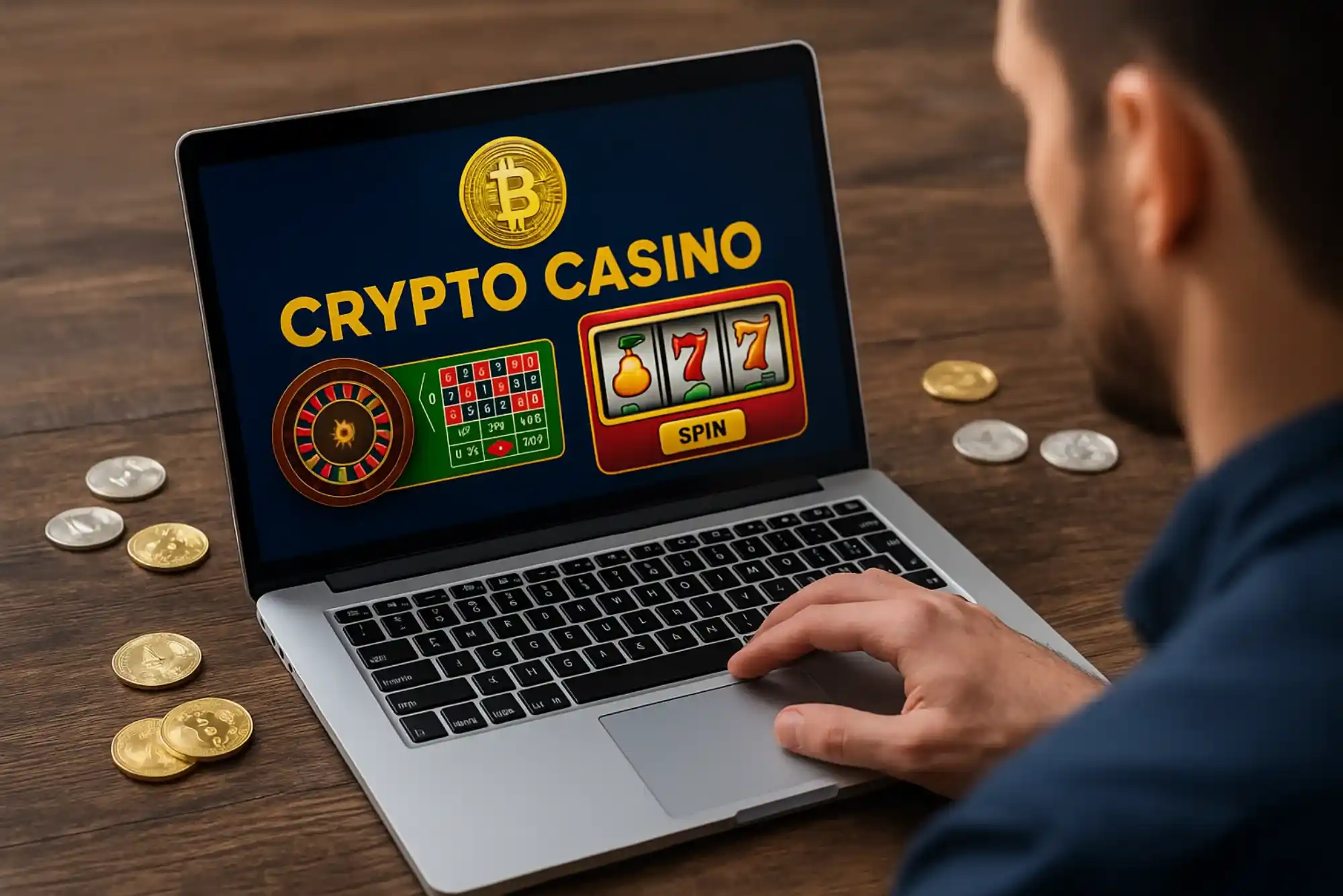Navigating the evolving landscape of online gambling, cryptocurrency casinos have surged in popularity over the past few years. With promises of anonymity, lightning-fast transactions, and innovative gameplay options, crypto casinos tempt both seasoned bettors and curious newcomers. But as someone who’s tested dozens of platforms and weathered a few missteps, I can tell you there’s more to the story than flashy banners and Bitcoin logos. In this article, we’ll dive deep into the safety aspects of crypto casinos, drawing on real-world examples, regulatory insights, and practical tips to help you play securely—and smartly.
Understanding Crypto Casinos: What Sets Them Apart?
Crypto casinos operate much like their fiat counterparts: they offer slots, table games, live dealer experiences, and more. The key difference lies in the currency they accept. Instead of traditional payment methods—credit cards, e-wallets, or bank transfers—you deposit and withdraw using cryptocurrencies like Bitcoin, Ethereum, or Litecoin. Early on, I was drawn to one platform that boasted zero transaction fees and instant deposits. Logging in at midnight, I loaded up Bitcoin in seconds and started spinning slots without a second thought about processing delays or third-party payment holds.
Crypto transactions are recorded on a public blockchain, meaning every deposit and withdrawal is transparent and immutable. This transparency can offer players peace of mind: you can verify that the casino’s wallet balance matches its reported holdings, ensuring they hold sufficient reserves. Yet, this decentralized environment also means fewer safety nets if things go wrong. Unlike licensed fiat casinos subject to strict regulations and consumer-protection laws, many crypto casinos operate in the gray zone—unregulated or licensed in offshore jurisdictions with minimal oversight.
Regulatory Landscape and Licensing
When assessing a crypto casino’s safety, licensing is a critical factor. Unfortunately, major regulators like the UK Gambling Commission or the Malta Gaming Authority have been slow to adapt to cryptocurrency. Instead, many crypto casinos hold licenses from bodies such as the Curacao eGaming Authority. These licenses can provide basic assurance: the operator underwent minimal checks, and there’s a formal process for dispute resolution. However, enforcement can be lax, and dispute-resolution timelines are often slow.
For players in countries with robust gambling regulations—say, Ireland—your best bet might be to gravitate toward established or hybrid platforms that accept both crypto and fiat. If you search “online casino Ireland,” you’ll find reputable sites that maintain full licensing under local laws while also offering Bitcoin and other cryptocurrencies. By using a regulated platform with crypto options, you balance the benefits of blockchain transactions with the security of a recognized gambling authority.
Smart Security Practices: Wallets, Keys, and Two-Factor Authentication
Even the most reputable crypto casinos can become vulnerable if players neglect basic security. I learned this the hard way after reusing the same password across multiple sites—one compromised platform exposed my credentials, leading to unauthorized hot-wallet transfers. To avoid that scenario, follow these practices:
Store your funds in a secure wallet. Hardware wallets like Ledger or Trezor offer robust offline storage, protecting your private keys from online hackers. Only transfer small betting amounts to your casino wallet, keeping the bulk of your holdings safely offline.
Never reuse passwords. Use a password manager to generate unique, complex passwords for each site.
Enable two-factor authentication (2FA). Whenever available, tie your account to an authentication app (e.g., Google Authenticator) rather than SMS-based codes; the latter can be susceptible to SIM-swapping attacks.
Keep software up to date. Ensure your wallet firmware, browser, and operating system are patched to minimize vulnerabilities.
Provably Fair Gaming: Verifying RNG Integrity
A standout feature unique to crypto casinos is “provably fair” gaming. Traditional casinos rely on random number generators (RNGs) audited by third-party firms. Crypto casinos add another layer: they provide each game round’s server and client seeds in hashed form. After gameplay, you can verify that the outcome was generated fairly and unaltered.
I tested a provably fair dice game on a niche crypto casino. Before placing any bets, I entered my own seed, then let the platform generate its hashed server seed. After a series of rolls, I used the casino’s verification tool to confirm that the results corresponded exactly to the combined seeds. This transparency is empowering: you’re not left wondering if the casino is overriding RNG outcomes to tilt odds in their favor.
However, not every crypto casino implements true provably fair systems. Always check for detailed guides on how to audit gameplay and run a few test rounds with minimal stakes to ensure the process works smoothly.
Transaction Transparency vs. Privacy Tradeoffs
Blockchain ledgers excel at transparency—you can trace every transaction to and from a casino’s wallet. But that openness comes at the cost of privacy. Unless you take extra precautions (e.g., using mixing services or privacy-focused coins like Monero), your bets and wins leave a public footprint that can be correlated with your identity.
In a conversation with a fellow bettor on an online forum, I learned that one player had inadvertently revealed enough personal information during KYC (Know Your Customer) verification to tie his real name to a series of large blockchain transactions. Shortly after, malicious actors targeted him with phishing emails and attempted wallet hacks. If you value anonymity, consider casinos that require minimal KYC for smaller deposits or use coins with built-in anonymity features. Always read the casino’s privacy policy to understand how they handle your data.
Real-World Examples: Successes and Cautionary Tales
To illustrate the mixed safety record of crypto casinos, let’s look at two contrasting stories.
Success Story – BitPlay Casino:
Licensed by Curacao eGaming, BitPlay implemented both provably fair games and robust 2FA requirements. Their public wallet is regularly audited and balances reported monthly. Players have commended their swift payouts (often under 10 minutes) and responsive support. In my first month, I withdrew a modest Bitcoin profit seamlessly—no delays, no hassles.
Cautionary Tale – Cryptobets.io:
Despite flashy promotions and celebrity endorsements, Cryptobets.io had no documented provably fair games. When the platform suffered a smart contract exploit, dozens of players—including myself—had funds locked in a compromised hot wallet. Support was slow to respond, and ultimately many players recovered only a fraction of their deposits. This example underscored the importance of vetting both the platform’s technical safeguards and their incident-response track record.
Choosing a Safe Crypto Casino: What to Look For
Armed with these insights, here’s how to vet your next crypto casino:
Verify licensing credentials. Even if it’s Curacao, check for clear license numbers and links to the regulator’s database.
Test provably fair systems. Play a few gratis rounds on dice or roulette games that offer client/server seed-based verification.
Read community chatter. Platforms like Reddit or Bitcoin talk have threads where players discuss payout reliability and security incidents.
Review privacy policies. Understand KYC requirements and data-protection measures.
Look for hybrid operators. If you prefer the additional oversight of fiat casinos, use a regulated “online casino Ireland” with crypto options to get the best of both worlds.
Responsible Crypto Gambling
Crypto’s volatility can magnify both wins and losses. I’ve seen Bitcoin’s price swing 20% in a single day—your casino bankroll can fluctuate significantly in fiat terms, even if the crypto balance remains constant. To stay on track:
Set crypto-specific budgets. Determine how much crypto you’re willing to risk, separate from your general investment portfolio.
Use stablecoins for bets. Tether (USDT) or USDC can lock in value and prevent price swings from hurting your bankroll.
Avoid chasing losses. Crypto’s allure can tempt you to double down, but discipline is key.
The Future of Crypto Casinos
As regulatory bodies catch up, we’ll likely see more hybrid licensing models and stricter oversight of crypto operations. Innovations like decentralized autonomous organization (DAO)-run casinos—where players vote on game additions and treasury allocations—could redefine fairness and governance. Meanwhile, layer-2 solutions promise even faster, cheaper transactions, making on-chain betting as seamless as any fiat option.
Conclusion
Are crypto casinos safe? The answer isn’t a simple yes or no. With proper due diligence—checking licenses, leveraging provably fair mechanisms, securing your wallet, and understanding privacy tradeoffs—crypto casinos can offer a secure, transparent, and exhilarating way to gamble. On the flip side, neglecting these precautions can expose you to hacks, unfair practices, or irreversible losses. By staying informed and practicing responsible gambling, you can navigate this dynamic landscape with confidence.




